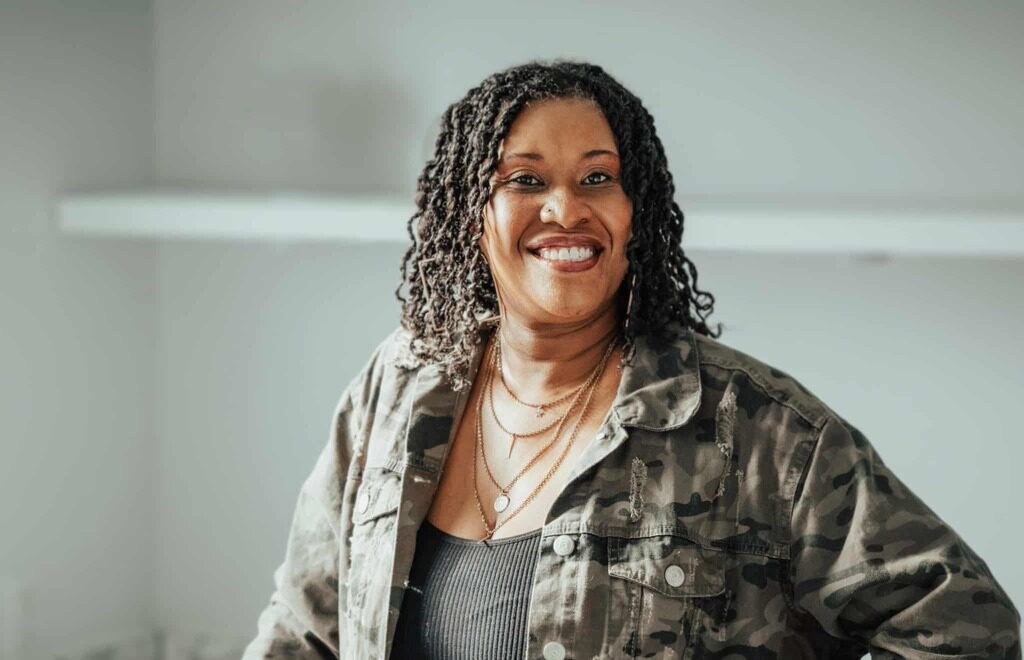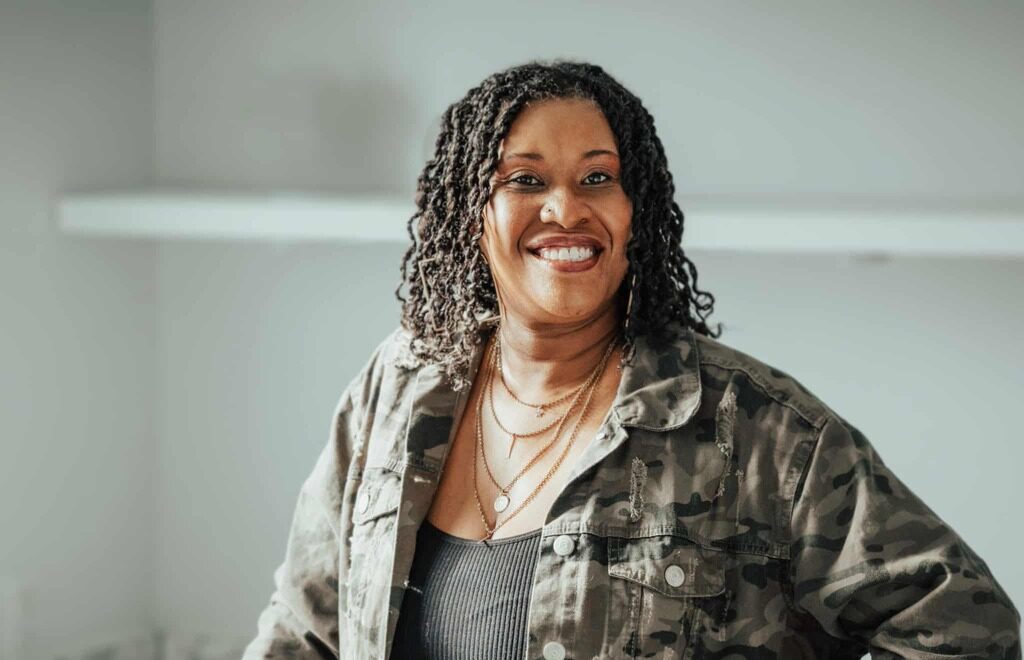Meet Tameka Jackson-Dyer: The Champion For Black Breastfeeding Mamas In Metro Detroit

For many new mothers, the breastfeeding journey can be filled with challenges and questions. However, in Metro Detroit, Black mothers have a champion in Tameka Jackson-Dyer, a lactation consultant whose pioneering work is helping to create a brighter future for families.
Her approach isn’t just about providing medical advice; it’s about building community and restoring a sense of power and knowledge that is often lost.
In a departure from conventional hospital-based care, Jackson-Dyer, affectionately known as “The Crazy Milk Lady,” and her organization are pioneering a new model of culturally informed, community-based support for Black mothers in the metro Detroit and Flint areas.
Jackson-Dyer, also the owner of Crazymilklady Lactation Support Services and co-founder of Southeast Michigan IBCLCs of Color (SEMI), is working to fill critical gaps in care that occur both in the hospital and after discharge. She spoke exclusively with Black Enterprise about the importance of her labor and how her work leverages the expertise of community-based doulas and lactation consultants to ensure families receive support that is both accessible and culturally congruent.
SEMI was formed to provide mentorship and support to its colleagues. Jackson-Dyer says the organization was created “to provide support and mentorship for our colleagues and ensure culturally congruent care for the families in our community.”
Many of the organization’s members are also doulas and have experience working within hospitals, which provides them with first-hand knowledge of the disparities that exist in the healthcare system. This work is supported by partnerships, including the Warm Referral Network (WRN), a collaborative effort between hospitals and community leaders that aims to infuse equity into baby-friendly practices by matching families with doulas, lactation support, and other resources.
Beyond direct support, Jackson-Dyer is focused on the role of technology in fostering peer-to-peer networks.
Social media groups, particularly on platforms like Facebook, have become vital spaces for Black mothers to connect and share experiences. National pages like “Breastfeeding Support Group for Black Moms” and “Black Women Do Breastfeed” provide platforms focused on socio-cultural issues. While these groups offer a vital lifeline, Jackson-Dyer notes that the public nature of social media can present privacy concerns.
A core part of this work involves de-stigmatizing breastfeeding within Black communities. Jackson-Dyer highlights how framing breastfeeding as a lifestyle choice, rather than a public health issue, has contributed to the stigma.
The lactation consultant argues for reclaiming breastfeeding as a historical birthright, stating, “Knowing the history and reclaiming our Birthright of being able to provide the perfect first food to our babies rather than being forced to provide it to others is something that many of us in the field have been working on for a long time.”
Changing this requires normalizing breastfeeding through visibility, with events like Black Breastfeeding Week and public photo shoots helping to make the act more visible and accepted. The message, she concludes, is simple: “Babies got to eat, anytime, anyplace.”
To address the economic barriers that often prevent Black mothers from accessing professional lactation support, SEMI utilizes innovative funding models, including grants, to support this effort. Jackson-Dyer points to the proven benefits of basic minimum income, which has been shown to improve breastfeeding initiation and duration by giving mothers the ability to take adequate maternity leave. However, she notes that these programs are not widespread, making grant funding a critical tool for her organization to provide care to those who cannot afford it.
Partnerships with local organizations and businesses also play a crucial role. Jackson-Dyer mentions the Michigan Breastfeeding Network (MIBFN) and its award programs, which recognize breastfeeding-friendly healthcare providers and workplaces. The creation of lactation rooms at Detroit Metro Airport, spearheaded by a former co-chair of the Metro Detroit/Wayne County Breastfeeding Coalition, is another example of how advocacy can create safe, physical spaces that normalize breastfeeding in public.
Looking toward the future, Jackson-Dyer believes that a truly equitable system begins with prenatal education and inpatient support provided to all mothers, free from implicit biases.
The proud “lactivist” stresses that the success of such a system should be measured not just in breastfeeding rates but in the overall mental, emotional, and economic well-being of Black mothers and their infants.
Breastfeeding, she concludes, is a win for society as a whole, boosting physical health, reducing the risk of mental health challenges associated with postpartum, and strengthening the bond between mother and child.
“When Black women can reclaim our Birthright as the sustainers of life, it will be a win for society as a whole.”
Right on.
RELATED CONTENT: HEALING A GENERATION: THE INTERTWINED CRISIS OF BLACK MATERNAL MENTAL HEALTH AND INFANT WELL-BEING


Responses